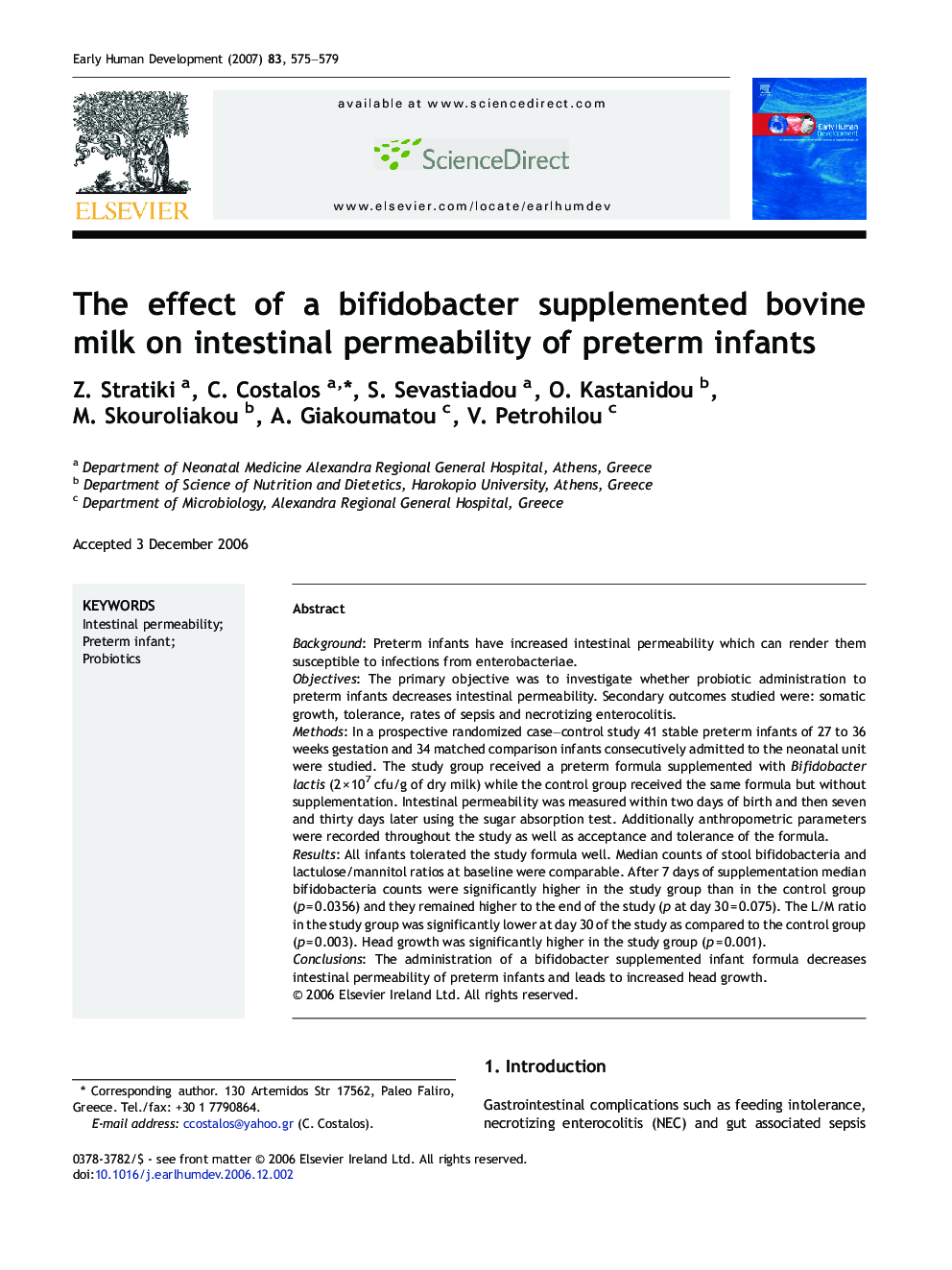| Article ID | Journal | Published Year | Pages | File Type |
|---|---|---|---|---|
| 3918598 | Early Human Development | 2007 | 5 Pages |
BackgroundPreterm infants have increased intestinal permeability which can render them susceptible to infections from enterobacteriae.ObjectivesThe primary objective was to investigate whether probiotic administration to preterm infants decreases intestinal permeability. Secondary outcomes studied were: somatic growth, tolerance, rates of sepsis and necrotizing enterocolitis.MethodsIn a prospective randomized case–control study 41 stable preterm infants of 27 to 36 weeks gestation and 34 matched comparison infants consecutively admitted to the neonatal unit were studied. The study group received a preterm formula supplemented with Bifidobacter lactis (2 × 107 cfu/g of dry milk) while the control group received the same formula but without supplementation. Intestinal permeability was measured within two days of birth and then seven and thirty days later using the sugar absorption test. Additionally anthropometric parameters were recorded throughout the study as well as acceptance and tolerance of the formula.ResultsAll infants tolerated the study formula well. Median counts of stool bifidobacteria and lactulose/mannitol ratios at baseline were comparable. After 7 days of supplementation median bifidobacteria counts were significantly higher in the study group than in the control group (p = 0.0356) and they remained higher to the end of the study (p at day 30 = 0.075). The L/M ratio in the study group was significantly lower at day 30 of the study as compared to the control group (p = 0.003). Head growth was significantly higher in the study group (p = 0.001).ConclusionsThe administration of a bifidobacter supplemented infant formula decreases intestinal permeability of preterm infants and leads to increased head growth.
